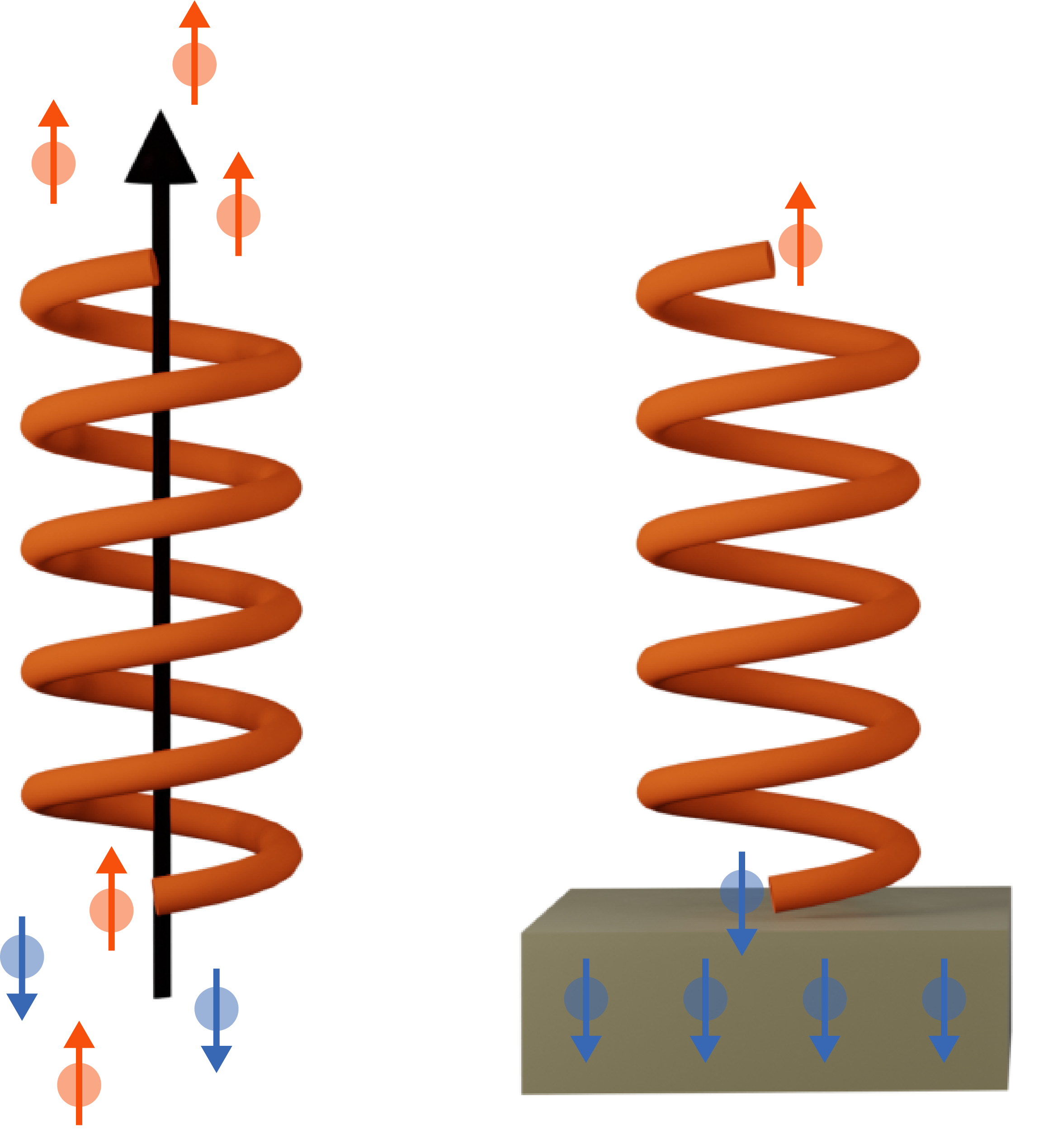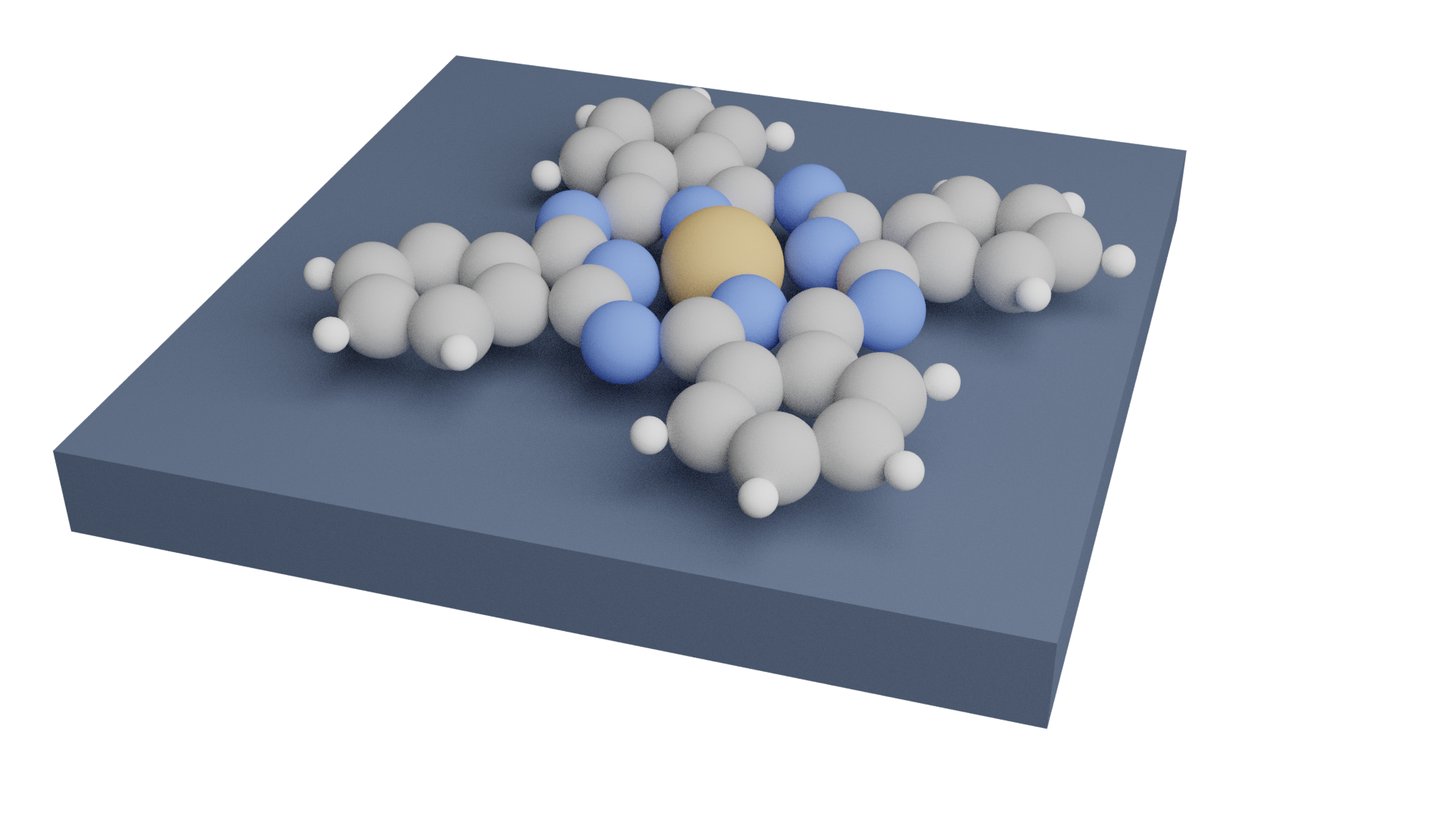Traditional charge-based electronics is rapidly approaching its fundamental boundaries in terms of density, size, speed, and functionality. Our group explores how we can make use of the spin degree of freedom to overcome these limitations and develop transformative technologies in unconventional materials systems.

Magnetic textures
The emergence of magnetic domains is intricately shaped by the interplay among diverse driving forces. Recent investigations have unveiled the pivotal role of magneto-elastic interactions, in addition to the well-known exchange interaction, magneto-crystalline anisotropy, and stray fields, particularly in antiferromagnetic materials. Our research brings together electrical magneto-transport experiments with advanced magnetic imaging techniques such as X-ray spectroscopy and nitrogen-vacancy center magnetometry to investigate magnetic textures in magnetic thin films. This comprehensive methodology empowers us to delve deep into the dynamics of magnetic domains, offering valuable insights into their formation and behavior.


Hybrid molecule magnetic systems
Molecules provide a unique platform for precisely tailoring the characteristics of hybrid systems by molecular design. In our research, we aspire to leverage the versatile, Lego-like adaptability of molecules to systematically explore the intricate connections between structure and property at hybrid interfaces. Through this approach, we aim to develop new functional hybrid devices with innovative capabilities. We are mainly focusing on the following three systems:
- Chiral molecules
Chiral induced spin selectivity (CISS) in chiral molecules is captivating due to its ability to influence electron spin transport differently based on the handedness (chirality) of the molecules. This phenomenon holds the potential to revolutionize (spin-)electronics and information processing by exploiting the unique spin properties of molecules, opening up new avenues for molecular-scale device design and functionality.
- Single-molecule magnets
Single-molecule magnets are a captivating area of study investigating individual molecules that exhibit magnetic behavior, offering a fascinating bridge between the microscopic quantum world and macroscopic magnetic phenomena. These unique molecules have the potential to revolutionize information storage and quantum computing, as they can store and manipulate data at the molecular level, paving the way for next-generation magnetic storage and computing technologies.
- Spin crossover compounds
Spin crossover compounds are a subject of immense interest due to their ability to transition between distinct electronic spin states in response to external stimuli, such as temperature or pressure. This remarkable property bridges the gap between classical and quantum behavior at the molecular level, promising innovations in areas like sensors, displays, and molecular switches. By harnessing spin crossover phenomena, researchers are unlocking novel opportunities for designing responsive materials with a wide range of practical applications in the fields of electronics and materials science.

